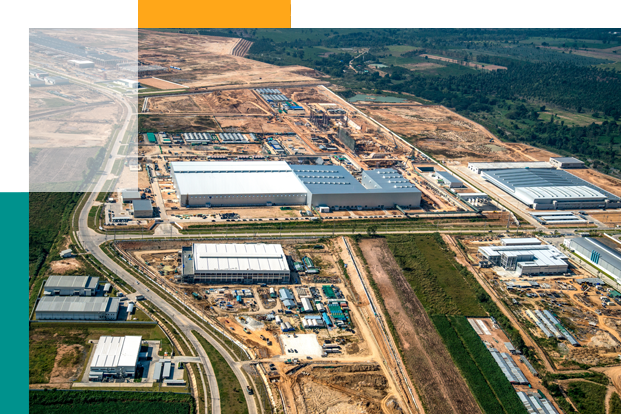What Is Entitlement in Commercial Real Estate?

An entitlement is “getting a municipality’s legal permission to construct or redevelop a piece of real estate for a certain use.” Each municipality has power over the legal use of the property that is under their jurisdiction, as well as the procedure by which an investor can modify the legal use of the land through entitlements.
What Is a Land Entitlement, and Why Do You Need It?
The legal procedure through which a landowner or real estate developer receives the local governing body’s approval for their development plans is known as land entitlement. Planning (when the property becomes entitled), Engineering (when grading permits and utilities are obtained), and Building and Safety are typically the three steps in the entitlement process (where the building permits are issued).
Before advancing any funding for construction and expansion, most conventional lenders will want these permissions. Any major land development project must start with entitlement, which ultimately decides the property’s allowable uses and the scope of its development.
The process of granting title to a property can be drawn-out, difficult, and complex, depending on the local governing body and the experts involved (surveyors, lawyers, etc.). Many distinct aspects of how the relevant property will be utilized are determined by entitlements, including,
- The building type
- Number of buildings
- Uses of each building
- Building setback requirements
- Architecture
- Landscaping
- Protected tree species removal
- Encroachments
The highest and best use of the subject property is considered when the land goes through the entitlement process, which is done in collaboration with the local zoning and planning department.
When a property is entitled, the owner or developer essentially has a contract with the governing municipality that sets down terms under which the property will be developed, what will be built there, and how the land will be utilized.
This arrangement with the local governing body frequently raises the property’s worth since, once a property is entitled, the authorized use or development is “vested,” which means that the owner has been awarded the right. It cannot be removed without the owner’s consent. This vesting offers assurance, and in the eyes of the developer, that assurance has value.
When a property lacks entitlement, the owner or developer cannot move forward with their development plans and, if they do, are likely to suffer the repercussions of doing so without the approval of the local governing body.
What Is an Entitlement Process?
The entitlement process can be complicated in many situations, so it’s good to know what to anticipate before you start. An overview of the typical entitlement process is provided below.
- Pre-application Meeting
- Submission of an application
- Initial Jurisdiction Review Period
- Initial Comments Provided to the Applicant
- Applicant Works to Address Those Comments
- Applicant re-submits updated materials in response to the initial comments made
- Secondary Jurisdictional Review Period
- If necessary, secondary comments are sent to the applicant, or draft conditions of approval are provided.
- If a public hearing is not required, the project is approved if the applicant fulfills the terms of approval.
- If a public hearing is required before the Planning Commission, it will be scheduled on an upcoming Planning Commission program.
- The process is complete if the Planning Commission approves the project.
What Are the Different Types of Entitlement Processes?
There are a variety of entitlements that may apply to your particular circumstance, including:
Utility Permits
You may need to get permission to add utilities if the property you wish to develop doesn’t already have them installed.
Rezoning
What can be done with a property is determined by its zoning. You might need to go through a rezoning procedure if the locality has not yet undergone this procedure for the use that you have in mind for the property.
Landscaping
In some circumstances, getting additional consent is required before beginning any landscaping work for the development project.
Road Approvals
If no roads link to your property already, you could require permission to build them. Boundaries may also need to be considered.
Use Permits
It could be essential to obtain a conditional use permit for your project. This kind of permit is generally needed when development might have an adverse effect on the neighborhood, such as more noise or traffic.
Zoning Variances
These variances may affect the heights of buildings, setbacks, and parking areas.
How to Get Started on the Process
Before you begin the entitlement process, a property-use pre-application that complies with all local regulations should be made. Once you’ve completed this application, you should submit it to your district planning office to officially start the land entitlement process.
How Long Does the Entitlement Process Take?
This is a crucial issue that needs to be raised during your preliminary research or at the pre-application meeting. However, the response varies depending on the state. Additionally, it depends on the type of entitlement being sought.
A Development Review, for example, could take 6–8 weeks, a Conditional Use Permit 6–9 months, and a Zone Change 12–18 months in some situations. The final deadline for project clearance will also be determined by how quickly and effectively you and your team can handle the comments and concerns raised by staff.
What Are Entitlement Costs?
Entitlement Costs are the direct out-of-pocket expenses PRF incurred to secure all required licenses and approvals for the construction of properties within the Industrial District for their specific uses.
The Costs Associated with the Entitlement Process
The following are typical costs associated with land entitlements:
- Entitlement application fees
- Duplication fees for the creation of plan sets
- Professional service fees (Architects, Engineers, etc.)
The precise sum varies depending on the project type and the state. Costs will be close to one another in all jurisdictions within a single county. A Conditional Use Permit, for instance, can cost $400 in one jurisdiction and $5,000 in another, though there is typically more uniformity within any given region.
Tips for a Smooth and Successful Entitlement Process
Going through the entitlement process for a planned commercial property may be compared to going to the dentist, which is occasionally even less fun. It is necessary to determine whether your project can be executed in real estate.
Getting zoning, design, and use approvals from the government is necessary to get the right to build or redevelop the property as envisioned. Here are some tips to follow to ensure a smooth entitlement process.
Reduce Risk
Even though there aren’t many things you can influence during the entitlement process, you can still do certain things to reduce the risk. Look into the wants, objectives, and goals of the community or city where the property is located.
Are there any existing plans for development, such as a general plan or another one you can pinpoint? Review some previous projects in the area that were similar and that were authorized and rejected. Learn why.
Determine which local politicians or organizations would be crucial in influencing the project’s outcome to take it a step further. Ask for advice from those who concur and discover the arguments being made by the skeptics.
Be Proactive
It’s quite dangerous to invest in and develop unentitled land. However, collaborating with the appropriate developer depends on their knowledge and careful investigation strategy to minimize that risk. This entails being able to recognize risks before acquiring unentitled land.
Planning also includes estimating that the complete process will take 3 to 12 months, occasionally longer, based on the situation. Another way to get a head start is to educate yourself on the current escalating difficulties involving land entitlement.
Understand Each Step
The normal entitlement process calls for the submission of a formal proposal, conceptual design package, technical, environmental, and any other appropriate studies, though it may differ between jurisdictions. These documents must be checked against the local planning department’s most recent zoning laws, initiatives, and ordinances.
It is additionally examined for any significant adverse environmental effects. Any other appropriate city officials must sign off on the paperwork. Lastly, the local community must be informed so that residents can submit comments and have their concerns resolved.
What is Entitlement Risk?
Entitlement risk occurs when a property developer creates a new structure or transforms an existing one, like converting apartments into condos. Zoning could pose an entitlement risk as well. However, zoning doesn’t pose a risk if the property is already zoned for the developer’s use before being purchased.
What is Construction Entitlement?
If you have one, you may or may not know the significance of entitlements in realizing your construction project concept. Before the permitting process begins, a construction project must go through the entitlements stage, which can happen either before or simultaneously with the design phase.
Recognize that the entitlements stage is regarded as occurring before construction, which means that whatever entitlements you are pursuing must take place before any construction can start.
Conclusion
The foundation of many construction projects is entitlements. The district planning office should accept your entitlement application if you use the proper route, at which point the first phases of development can start. Even if the entitlement process can take some time, being aware of what it comprises should help you prepare for the many stages of this process.
Finance Lobby is the premiere real estate financing platform. We connect lenders and brokers to get the best possible deal for everyone.


